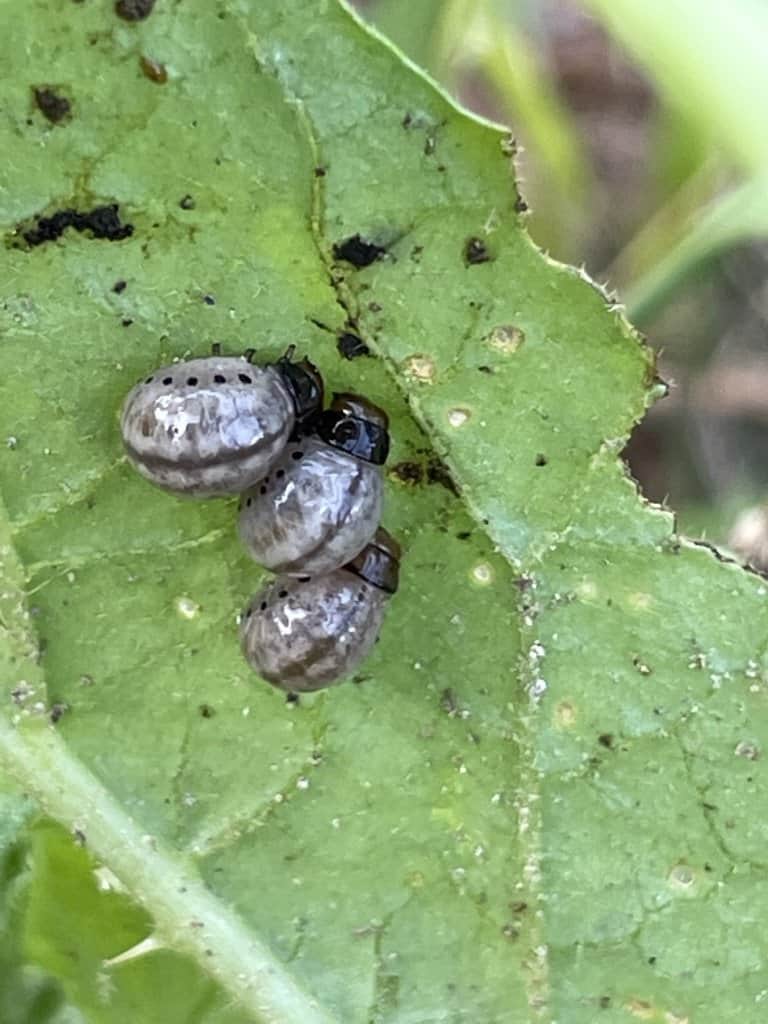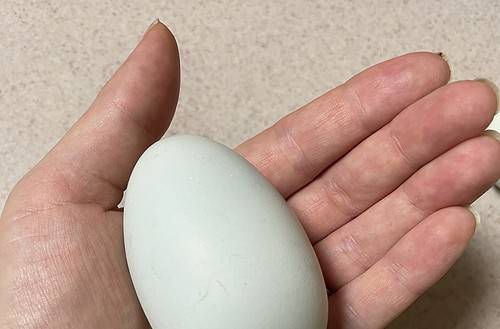Can Chickens Eat Bugs? 20 Questions?

Can Chickens eat bugs? Yes! Chickens have a natural penchant for insects, and including bugs in their diet can be quite beneficial. In this article, we’ll delve straight into the world of chickens and bugs, addressing common questions about which bugs chickens can eat and which to avoid.
I independently review every product I recommend. When you make a purchase through a link, I may earn a small commission at no additional cost to you. Learn more
1. Can Chickens Eat Ants?
Certainly! Ants are a safe and nutritious snack for chickens. They provide a good source of protein, and chickens often enjoy foraging for them.
2. Can Chickens Eat Beetles?
Yes, chickens can consume beetles without issue. Beetles are generally safe and offer a protein-rich addition to their diet.
3. Can Chickens Eat Grasshoppers?
Absolutely! Chickens relish grasshoppers as a natural and protein-packed treat. These insects are often a favorite among poultry.
4. Can Chickens Eat Crickets?
Chickens can indeed feast on crickets. These small insects are an excellent source of protein and are commonly relished by chickens.
5. Can Chickens Eat Mealworms?
Mealworms are a popular and nutritious treat for chickens. They are high in protein and can be a valuable addition to their diet.
6. Can Chickens Eat Earthworms?
Yes, chickens can consume earthworms, and they do so with gusto. Earthworms are a fantastic source of protein and are a favored delicacy for chickens.
7. Can Chickens Eat Snails?
Chickens can safely consume snails. Snails offer both protein and calcium, though some chickens may be more selective in their preferences.
8. Can Chickens Eat Spiders?
Chickens can eat small spiders without harm, but it’s best to avoid giving them larger or potentially venomous spiders. Small spiders provide a protein boost.
9. Can Chickens Eat Ladybugs?
Chickens can eat ladybugs, but it’s advisable not to feed them too many. If you are a gardener you want these beneficial bugs to thrive in your garden!
10. Can Chickens Eat Mosquitoes?
Chickens may eat mosquitoes, but they are not a substantial food source for them. Mosquitoes are more of an occasional snack.
11. Can Chickens Eat Ticks?
Chickens are quite adept at eating ticks, and this can be advantageous in reducing tick populations in your area. Our tick pressure has gone down every time we allow the chickens to free range!
12. Can Chickens Eat Fireflies (Lightning Bugs)?
Chickens may consume fireflies, but they are not a significant part of their diet. Be cautious in areas where fireflies may be exposed to pesticides.
13. Can Chickens Eat Centipedes or Millipedes?
Chickens can eat small centipedes or millipedes, but it’s advisable to avoid larger or potentially venomous ones.
14. Can Chickens Eat Bees or Wasps?
Chickens may consume bees or wasps, but it’s not recommended. Stings from these insects can be painful and potentially harmful to chickens.
15. Can Chickens Eat Roaches?
Chickens can eat small roaches, but it’s wise to exercise caution when offering them larger or potentially contaminated roaches.
16. Can Chickens Eat Caterpillars?
Chickens can eat caterpillars, but it’s essential to identify safe species, as some caterpillars may be toxic. Exercise caution when serving them.
17. Can Chickens Eat Flies?
Chickens may catch and eat flies, but flies are not a primary food source for them.
18. Can Chickens Eat Maggots?
Maggots are on the chicken’s menu and provide a good source of protein. They are often found in decomposing organic matter.
19. Can Chickens Eat Slugs?
Chickens can consume slugs, but it’s advisable to limit their consumption due to the slimy texture.
20. Can Chickens Eat Stink Bugs?
While chickens may consume stink bugs, it’s not their preferred choice, and some stink bugs emit unpleasant odors when disturbed.
Beware of These Bugs for Your Chickens
1. Poisonous Insects:
- Some insects, like certain types of beetles and caterpillars, can be toxic to chickens. Consuming these insects may lead to illness or even death.
2. Venomous Spiders and Insects:
- Chickens should steer clear of venomous spiders and insects, as their bites or stings can be harmful or deadly. Examples include black widow spiders and scorpions.
3. Stinging Insects:
- Bees, wasps, and hornets are best avoided due to the painful stings they can deliver. Chickens may try to catch them but can get hurt in the process.
4. Fire Ants:
- Fire ants are aggressive and can deliver painful stings. Eating them can lead to discomfort for chickens.
5. Toxic Plants with Insects:
- Insects that feed on toxic plants can carry toxins in their bodies. If chickens consume these insects, they may be exposed to harmful substances indirectly.
6. Pesticide-Exposed Insects:
- Insects from areas treated with pesticides or chemical insecticides should be avoided. Pesticide residues can harm chickens.
7. Disease-Carrying Insects:
- Insects known to transmit diseases, such as certain types of ticks and mosquitoes, should be avoided to reduce the risk of disease transmission.
8. Large or Hard-Shell Insects:
- Insects with tough or large exoskeletons can be challenging for chickens to consume and may cause digestive issues if ingested.
9. Spiny or Prickly Insects:
- Insects with sharp spines or prickly features can harm a chicken’s mouth or throat during consumption.
10. Rotten or Decaying Insects:
– Insects found in rotting or decaying organic matter may carry harmful bacteria or parasites that can make chickens sick.
It’s crucial to exercise caution and ensure that the insects offered to chickens are safe, pesticide-free, and appropriate in size for their consumption. Obviously, you can’t control which insects your chicken is going to encounter. However, monitoring your chickens’ foraging activities and providing a balanced diet alongside their bug snacks will help keep them healthy and happy.
Chickens can enjoy a variety of bugs as part of their diet, provided that the insects come from pesticide-free areas and are not toxic or dangerous. Incorporating these insect options into their meals can be a healthy and satisfying choice for your feathered companions.
For more helpful information on the dietary requirements of chickens check out What Chickens Can & Can’t Eat and Can Chickens Eat Spicy Food?
Thank you for meeting me AT FORESTS EDGE. Where I am learning to grow food for my family and sharing my insights with you. I would love for you to join me on this journey, and subscribe to my newsletter where I share encouragement throughout the year as we GROW HOPE!
Until we meet again,
Raeanna





